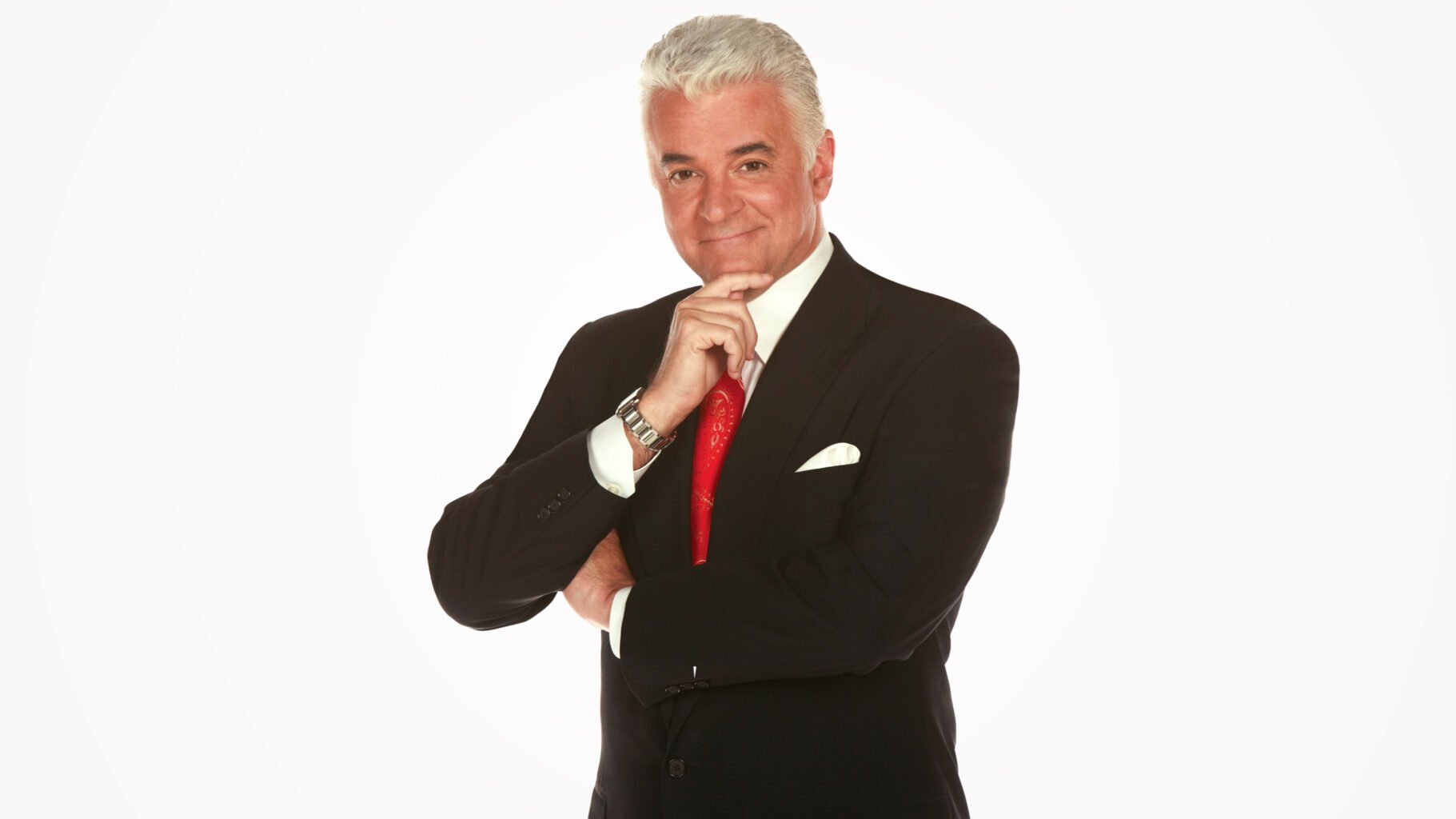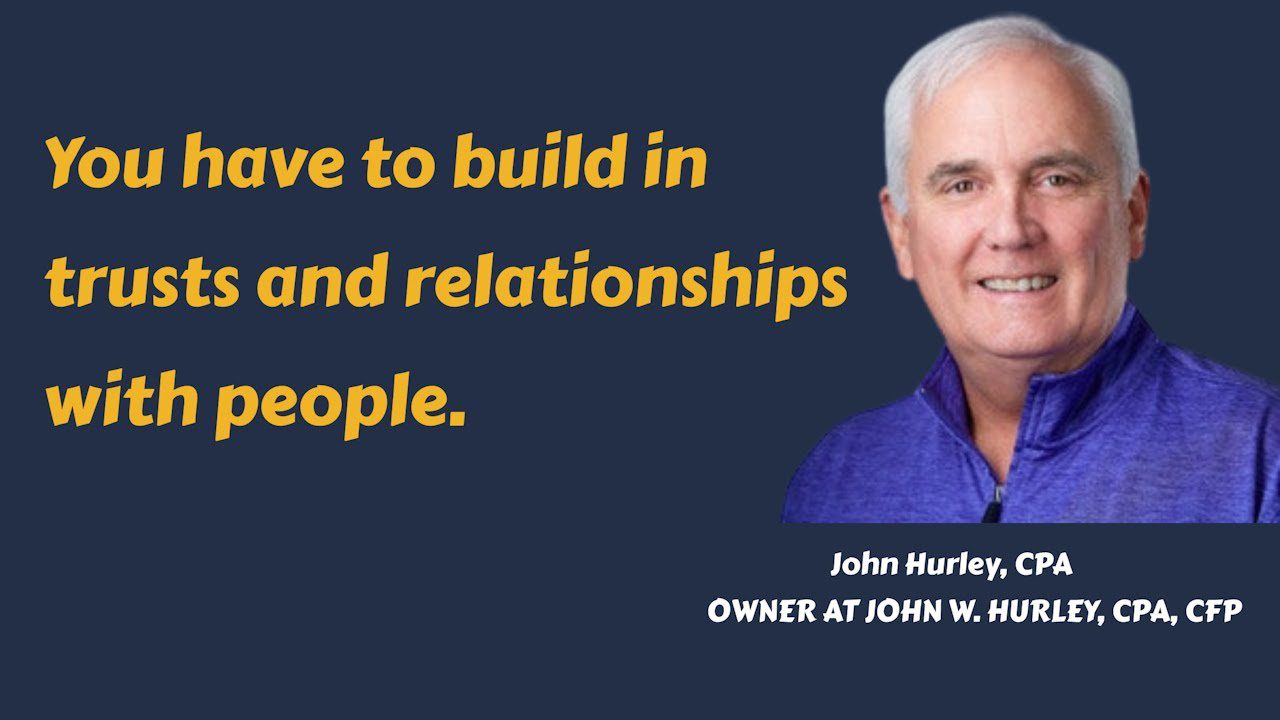In Episodes #25 and #26 of the CPA Career Paths podcast, I had the pleasure of interviewing John Hurley, a seasoned professional with decades of experience as a CPA, Personal Financial Specialist (PFS), and Certified Financial Planner (CFP). John’s career journey spans continents, industries, and niches, making his story an invaluable resource for aspiring and young accounting professionals.
During our conversation, John shared how he transitioned from audit to running his own practice for 30 years, all while mastering new skills, overcoming challenges, and embracing change. Let’s dive into some of the most memorable lessons from our discussion.

1. Starting the Journey: How a D in Accounting Changed His Perspective
John’s path to becoming a CPA wasn’t without its bumps. “My first accounting class didn’t go well. I crammed for a test on allowance for doubtful accounts and got a D,” he recalled. This wake-up call motivated him to take accounting seriously and explore its career potential.
For young professionals, the takeaway is clear: setbacks are opportunities to reassess and refocus. If you’re feeling overwhelmed by technical concepts or exams, use those moments to reevaluate your study strategies and long-term goals.
2. The Value of Audit: A Foundation for Understanding Business
John began his career in audit, which he considers an excellent foundation for anyone starting in public accounting. “Audit allows you to visit client offices, see how operations work, and interact with people across different levels of a company,” he explained. These experiences equipped him with a deep understanding of financial statements and internal controls—skills that served him well when he moved into management advisory services and later started his own business.
Key advice:
- Start in audit if you’re unsure which area of accounting to pursue.
- Embrace the diverse challenges audit presents, from inventory counts at 5 a.m. to preparing financial reports.
- Use audit as a stepping stone to other areas like consulting or financial planning.
3. Building Relationships: Networking Beyond Traditional Methods
John’s client base wasn’t built through cold calls or aggressive marketing but through relationships he nurtured over time. “Eighty percent of my business came from playing baseball with friends in Mexico City,” he shared. One was a doctor who introduced John to other medical professionals, while another was a private equity professional who referred clients.
Key advice:
- Find ways to engage with your community, whether through sports, volunteering, or professional organizations.
- Focus on building genuine trust and delivering value.
- Let your work speak for itself; clients will recognize and recommend you.
4. Technology in Accounting: A Game Changer
The role of technology in accounting has evolved dramatically since John’s early days in the field. He’s seen it all—from filling out tax sheets manually to working with cloud-based platforms.
“Technology is reshaping the profession,” John emphasized. “ChatGPT and other AI tools are impressive, but firms must handle client data responsibly.”
Key advice:
- Stay updated on emerging technologies like AI, blockchain, and cloud-based accounting software.
- Use technology to streamline processes but always understand the underlying principles behind the results.
- Take courses on data analytics and cybersecurity to future-proof your career.
5. The Importance of Adaptability: Moving Across States and Industries
John’s career involved relocating multiple times—from New Orleans to New York, Florida, and back. Each move required adaptability and a willingness to learn new skills. For example, when he worked for a mining company, he became an international tax manager despite having no prior experience in the field.
“I didn’t know anything about international taxes,” he admitted. “But I figured it out by diving into the work.”
Key advice:
- Be open to new opportunities, even if they seem intimidating at first.
- Adaptability is key in a profession that’s constantly changing.
6. Work-Life Balance: Prioritizing What Matters
While long hours are often a hallmark of accounting, John shared that firms are now recognizing the importance of flexibility. He cited examples of firms offering reduced schedules during tax season to accommodate employees’ needs.
Key advice:
- Prioritize your well-being; burnout helps no one.
- Seek employers who value work-life balance and provide flexible options.
- Set boundaries early in your career to ensure sustainability.
7. Lessons for Young CPAs: Building a Successful Career
Toward the end of our conversation, I asked John for his advice to those starting their accounting careers. Here’s what he said:
- Master the basics: Even as technology automates entry-level tasks, understanding debits, credits, and financial statements is essential.
- Cultivate soft skills: Communication, relationship-building, and responsiveness are just as important as technical knowledge.
- Explore diverse roles: Don’t limit yourself to audit or tax. Consider consulting, personal financial planning, or management advisory services.
- Never stop learning: “You can never take enough courses on personal finance and financial planning,” John emphasized.
John Hurley’s story is a testament to the diverse opportunities and rewarding experiences a CPA career can offer. From navigating audits to building lasting relationships and mastering financial planning, his journey highlights the importance of adaptability, continuous learning, and community involvement.
If you’re inspired by John’s journey and want more tips to master your CPA career, join my monthly newsletter. Stay updated on podcast episodes, career insights, and exclusive resources to help you thrive in the accounting profession. Sign up today and take charge of your future!

